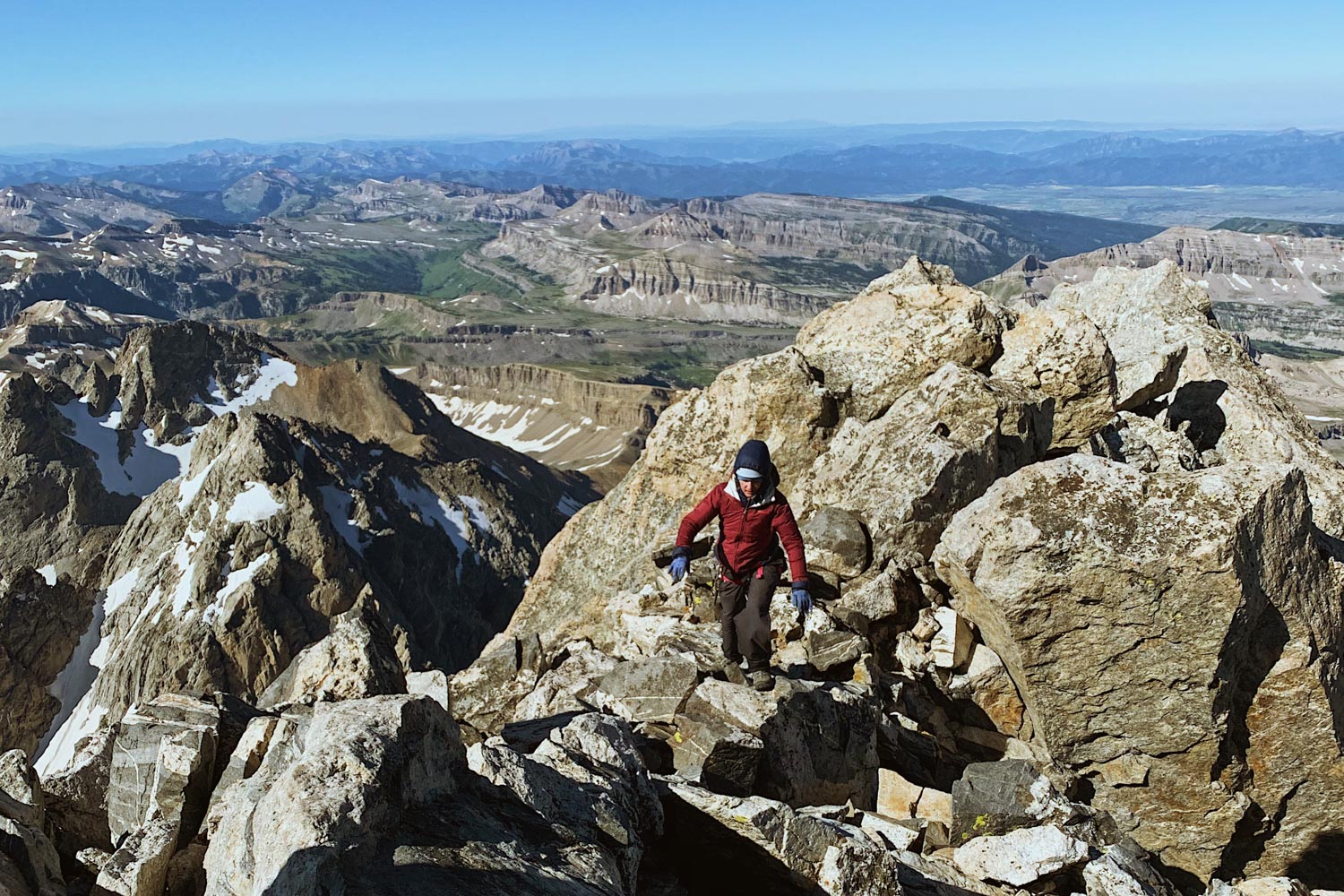Anxiety vs. Intuition: Recalibrating My Sense of Fear in the Backcountry

Anxiety vs. Intuition
Recalibrating My Sense of Fear in the Backcountry
By Kourtney Wellette
My feet have been returned to the ground and my brain can process the input my eyes keep signaling. The white noise and speeding scenery have stopped flying past me. I am just here, standing.
Over the past five years, I have been healing from an antineuronal autoimmune reaction to bacteria that caused my immune system to attack and inflame my brain, leaving me incapable of thinking clearly in anyway.
What I used to know as instinctual fear that I could trust became an irrational interpretation of everything around me. Driving a car made my veins constrict and breath shorten. My thoughts distorted the speed at which life was moving around me—simultaneously fast and slow.
What I used to know as instinctual fear that I could trust became an irrational interpretation of everything around me.
I’d spend a significant part of the day hiding under the covers, darkening shades drawn. The comfort of my bed settled the rushing thoughts long enough for me to attempt to process what I was experiencing. Encephalitis entails an array of side effects, but for me, the most grueling of them all was this sudden onset of anxiety. My beautiful world was suddenly tainted by doubt and threat at every turn.
Growing up in Central Oregon, Smith Rock used to be a place of comfort; a place to hike away any teenage angst and get a sense of freedom and wild. Back then the park attracted a fraction of the crowd you will find there today.
In the fog of encephalitis, though, the thought of even being on a trail tightened my chest. The mountain lakes that once filled me with a meditative calm now swam with irrational thoughts that a lake monster was looming below. To make matters worse, my anxious and rather detached response to even the smallest threat was unsound.
Encephalitis entails an array of side effects, but for me, the most grueling of them all was this sudden onset of anxiety. My beautiful world was suddenly tainted by doubt and threat at every turn.
Nature had gone from a place of comfort to a place full of hyperbolic dangers that I was quickly losing the confidence to take on. Life was terrifying.
At the time the United States medical system was not equipped with enough microbiology research to link the autoantibodies in my system to the anxious symptoms I was experiencing. Instead, I was prescribed a hefty dose of “chemical balancers” which only further aggravated my symptoms. If it weren’t for my mother’s advocacy, I would have fallen victim to the belief that my anxiety was permanent rather than a symptom of bacterial and toxin exposure.
After years of misdiagnosis and avoiding the trees, she got me connected with functional medicine doctors who were dedicating every waking minute of their practice to healing antineuronal autoimmune disease.
Slowly but surely over the last few years I’ve put my brain back together by operating under the ideology that anxiety is a symptom of a much larger biological problem.
Chasing the ambiguous treatment, sleeping often, and prioritizing nutrition, the bacteria backed down and my white blood cells regained their place in my immune system. Yet my neurons had adapted to this new way of thinking, so those anxious pathways still engraved my reality.
That’s where the backcountry comes in:
When you are trying to decide between going off course or heading 3,000 feet up a peak knowing there is no water source within 20 miles…
When the sun is setting and the planned camp site seems to have disappeared from the trail…
When you catch a ride with a cook from a rundown lakeside restaurant, clutching the bear spray and knife the entire way…
When a sign informs a trail closure due to high mountain lion activity, but the only other route to where you are going is the highway, with sunlight, map, and compass the only tools to tell time…
When the only thing that gets your strained knee up another one of the hills around Crater Lake is the idea of a cheeseburger six more miles at the lodge…
When you are on an exposed cliff at 12,000 ft with spots of ice and you climb past a nut that you were supposed to pull…
When you are in the backcountry, facing any number of real or perceived threats, the only safe way to proceed is to recognize the level of danger you are in and make your decisions accordingly.
It was these moments in the backcountry that helped me take my brain back.
From these moments I have learned that fear is good. Fear reminds me to communicate with my people, triple check the map, compass, knots, and objective for being in the woods. Fear forces me to define trust in a way I never have before; both in myself and those who are wild enough to explore alongside me.
It was these moments in the backcountry that helped me take my brain back. These moments rewired the tangled mess of neurons to face, process, and understand the fear signals. The best tool I had in mitigating anxiety was to practice trusting my intuition again in the backcountry.
Kourtney Wellette is a lover of neutral colors and long table dinners put together by the collective. Her favorite non-nature pastimes include discussing risk assessment and social impact of hypothetical business endeavors, dancing to a scratchy Emmylou Harris record, and spooning her pup, Tayd’m May. See more from Kourtney on Instagram @kk_maureen and her website.




Be the first to comment